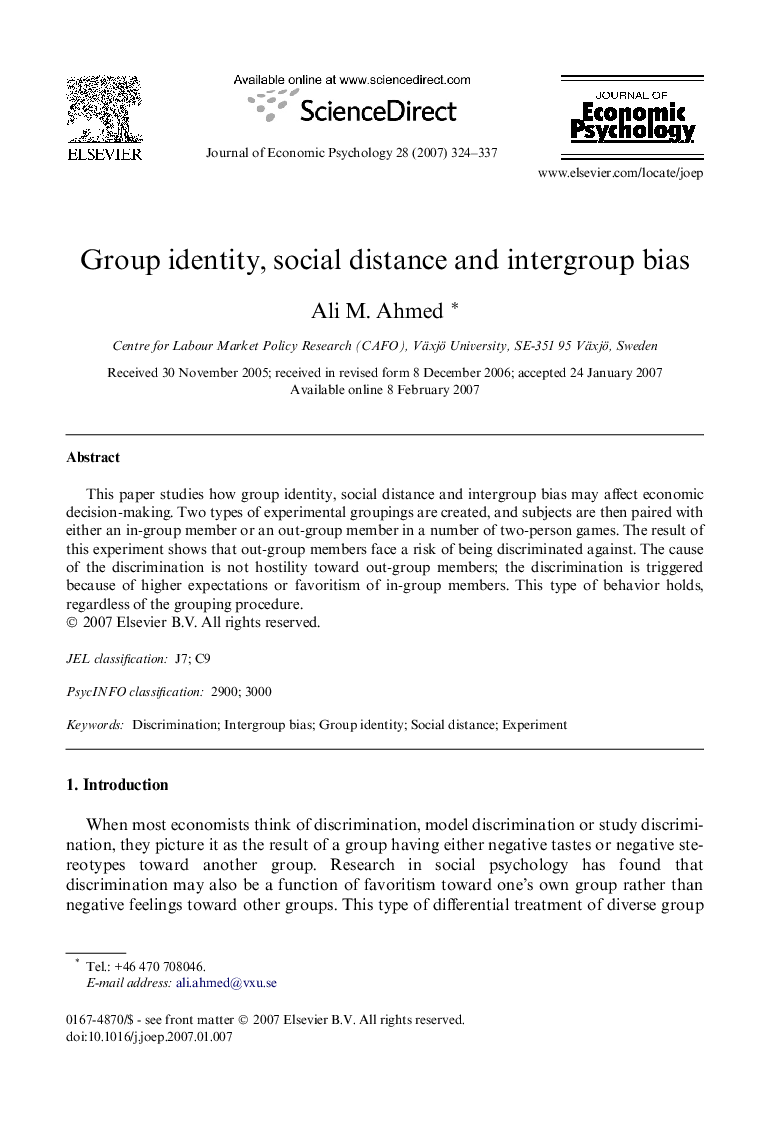| Article ID | Journal | Published Year | Pages | File Type |
|---|---|---|---|---|
| 885461 | Journal of Economic Psychology | 2007 | 14 Pages |
Abstract
This paper studies how group identity, social distance and intergroup bias may affect economic decision-making. Two types of experimental groupings are created, and subjects are then paired with either an in-group member or an out-group member in a number of two-person games. The result of this experiment shows that out-group members face a risk of being discriminated against. The cause of the discrimination is not hostility toward out-group members; the discrimination is triggered because of higher expectations or favoritism of in-group members. This type of behavior holds, regardless of the grouping procedure.
Related Topics
Social Sciences and Humanities
Business, Management and Accounting
Marketing
Authors
Ali M. Ahmed,
